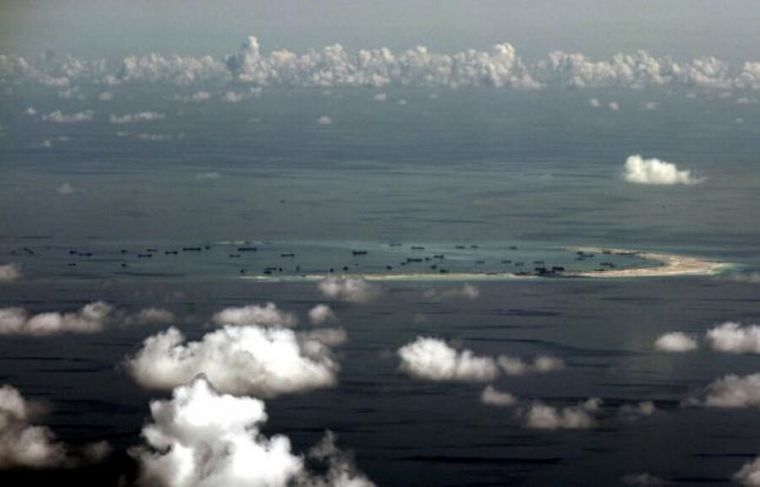'Big, powerful' China has no right to 'throw elbows, push people out,' says Obama

Speaking in plain language, US President Barack Obama castigated China for its aggressive action in Southeast Asia as it pursues its land reclamation projects in the South China Sea.
In a town-hall discussion at the White House on Monday with a group of young leaders from Southeast Asian nations, Obama described Chinese action in the region as "counterproductive."
"We think that land reclamation, aggressive actions by any party in that area are counterproductive," Obama said.
The US President acknowledged that some of China's claims may be legitimate, but that this does not give it the right to "throw elbows" and "push people out of the way."
"China is going to be successful. It's big, it's powerful, its people are talented and they work hard. And it may be some of their claims are legitimate," Obama said.
"But they shouldn't just try to establish that based on throwing elbows and pushing people out of the way," he said.
Meanwhile, the US-based Center for a New American Security (CNAS) accused Beijing of engaging in doublespeak to conceal the real purpose of its massive land reclamation in disputed waters.
Van Jackson, a fellow at the CNAS and the Council on Foreign Relations International Affairs, said regardless of what China is saying to appease its neighbours, it is actually projecting and asserting its power beyond its borders.
Van Jackson said this is made evident in China's new white paper on security. "It's assertive not only because it reiterates a willingness to fight with its neighbours on all too familiar regional flashpoint, but also because it lays out expectations of having to do the same far outside its nine-dash line," Jackson said in a CNAS report.
The security expert said the white paper confirmed long-held expectations that the People's Liberation Army (PLA) would no longer confine itself to internal operations.
"It will expand its overall force structure and more greatly emphasize the maritime domain. It will improve proficiency in the ability to project power out of the area," Jackson said. "And, despite the document's protestations to the contrary, it will seek a global basing and port access network."
He said China is doing this to satisfy the needs of its growing economy, which is dependent on global markets and access to global resources.
He said China's huge demand for raw materials and resources to keep its manufacturing sector running is the reason why it is seeking greater access to the seas even well beyond its maritime domain.
"With the most recent defense white paper, China is transparent about the fact that the PLA of tomorrow will be larger, more capable and more willing to fight and defeat those it deems opponents than the PLA of today. Time is thus on China's side," Jackson said in his report.
Based on the white paper, China will not budge an inch in its territorial disputes in the South China Sea and East China Sea, Jackson said.
He said China will eventually build up its forces in the region, basing them in the islands it is creating in the South China Sea.











